Engineering
At Stoneyholme Community Primary School, we aim to inspire the next generation of Engineers by targeting children from a young age. Engineering is all about solving real-world problems, designing systems, and creating things that make life better.
I am a Stoneyholme Engineer because...
- I am curious, creative and use my imagination to design and create products
- I am resourceful, innovative and enterprising
- I can draw on my knowledge and skills to make products for different audiences
- I can critique, evaluate and test my own ideas/ products
- I have the knowledge, expertise and resources to participate in an technological world
Policy
Vision
At Stoneyholme Community Primary School, we aim to inspire the next generation of Engineers by targeting children from a young age.
Intent
- To provide students with a foundational understanding of Engineering and its role in society
- To encourage curiosity, creativity, and a love for learning through hands-on Engineering activities
- To develop students' problem-solving skills by engaging them in Engineering design processes
- To promote collaboration, communication, and teamwork among students
- To ensure all Engineering activities are safe, inclusive, and accessible to all students, regardless of background, ability, or gender
- To use project-based learning to allow students to engage with Engineering concepts practically and creatively
- To encourage students to ask questions, think critically, and explore Engineering solutions through experimentation and investigation
- To link Engineering activities with other subjects like mathematics, science, technology, and art to provide a well-rounded learning experience
- All Engineering learning promotes and supports the learning of English through discussion work, research and reflection on technical knowledge
- All children understand the importance of knowing more and remembering more and how this is integral to Engineering and evaluation
Implementation
The EYFS Engineering Curriculum is taken from the EYFS Statutory Educational Programme:
- In EYFS children explore how to safely use a variety of materials, tools and techniques, experimenting with colour, design, texture, form and function
- Pupils begin to use their natural curiosity and share their creations, explaining the process they have used
- Pupils are encouraged to make use of props and materials when role playing characters in narratives and stories
KS1 and KS2 planning is taken from the school’s Engineering Curriculum Overview. As part of this planning process, teachers plan:
- A sequence of Engineering lessons for each unit, which includes progression and depth
- Teachers ensure that they check prior knowledge and always review previous learning by questioning and quizzing
- Provide age-appropriate Engineering kits, tools, and materials that are safe and suitable for primary school students
- Use everyday materials and recyclable items to promote sustainability and creativity
- Access digital resources and technology to support Engineering learning, such as educational software, videos, and interactive tools
- Provide opportunities for all students to participate in Engineering activities
- Lessons that are engaging and have a strong focus on knowledge, including an emphasis on key Engineering vocabulary for that unit
- Adapt activities and materials to accommodate students with different learning needs and abilities.
- A clear line of questioning that will enable teachers to assess the children’s understanding of key concepts
- Challenge questions for pupils to apply their learning
- Trips and visits from Engineers who will enhance their learning experience and enable children to see how Engineers impact the world we live in
- Engineering is planned as a stand-alone subject however links are made where possible with the wider curriculum
- Children from EYFS to Year 6 are going to have a wonderful opportunity to take part in a project. Each year group project presents wonderful cross-curricular links for children to develop their skills in Science, Technology, Engineering, the Arts and Maths. The step by step process will provide children with exciting experiences, whilst on their journey to produce a fabulous final outcome
Impact
Our Engineering Curriculum is planned and organised to ensure progression. If children are keeping up with the curriculum, they are deemed to be EXS or GDS. We use the following methods to track their progress in Engineering:
- Monitoring of books, knowledge organisers, long term plans and the website
- Assessment against National Curriculum, weekly linked to key questions on knowledge organisers and an overall judgement at the end of a unit of work
- Key questioning on previous knowledge and current knowledge
- Repeated quizzes at the end of each unit of work
- Pupil discussions within class about their learning
- Pupil interviews about their learning with subject leader
Curriculum Overview
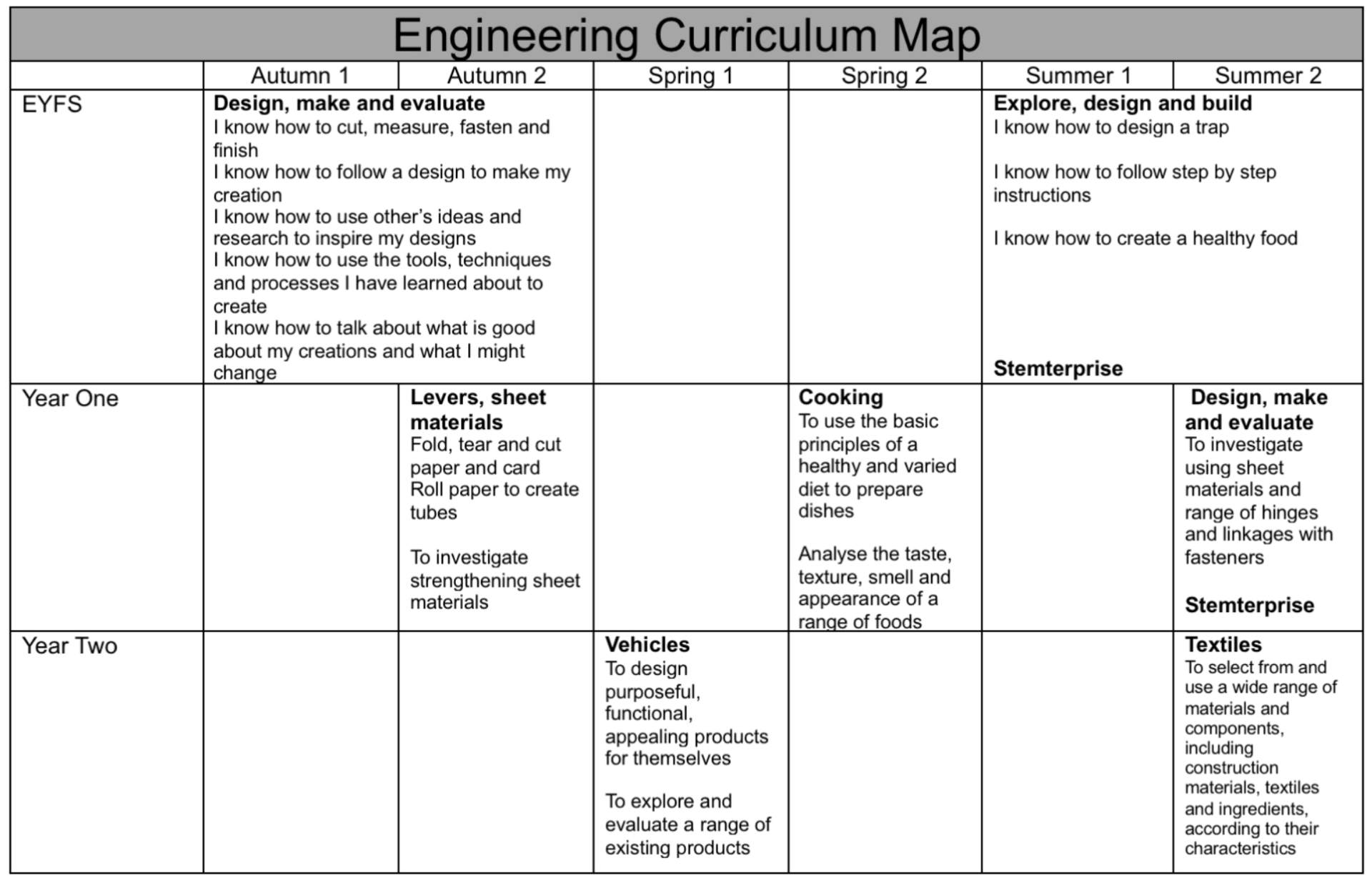
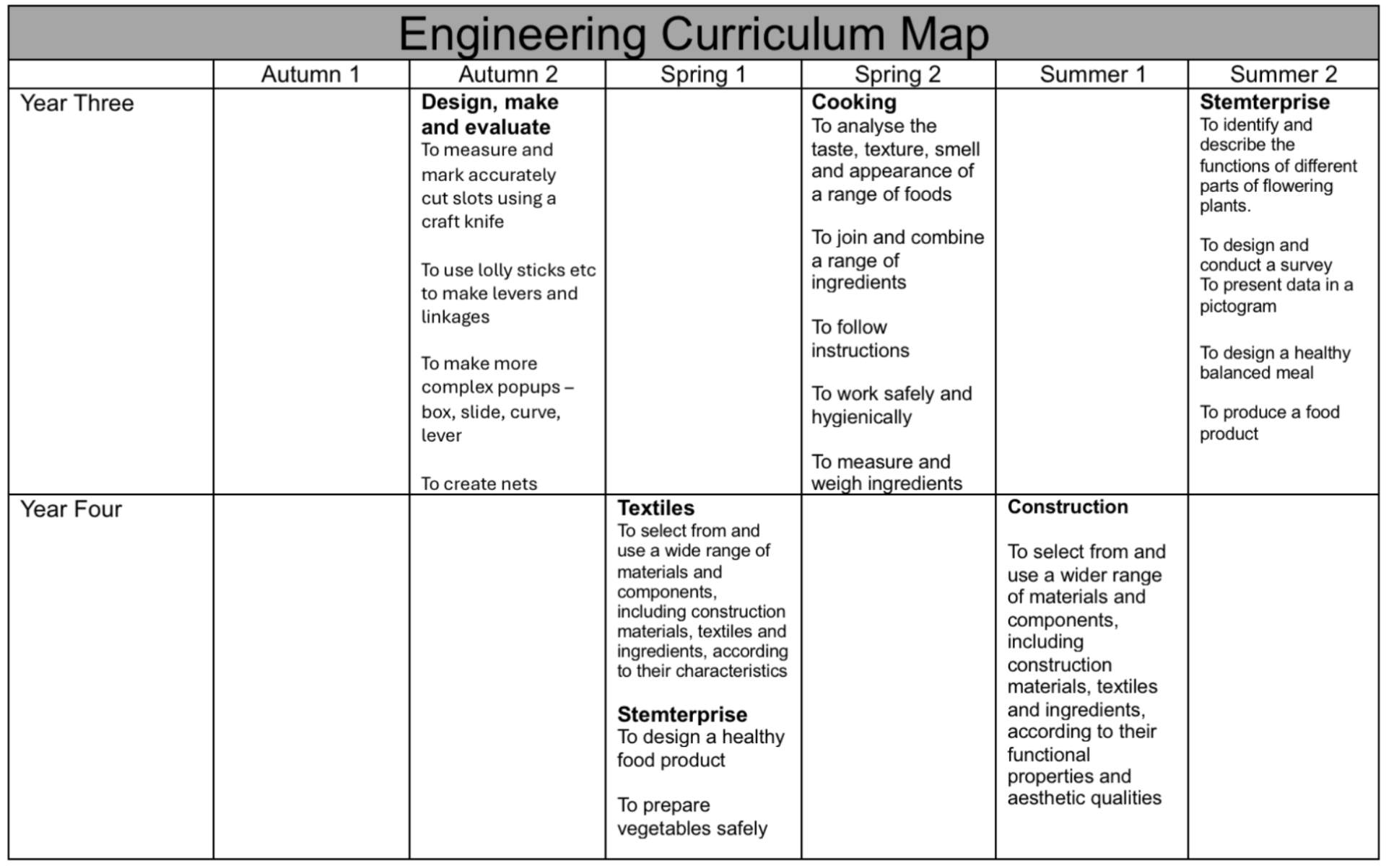
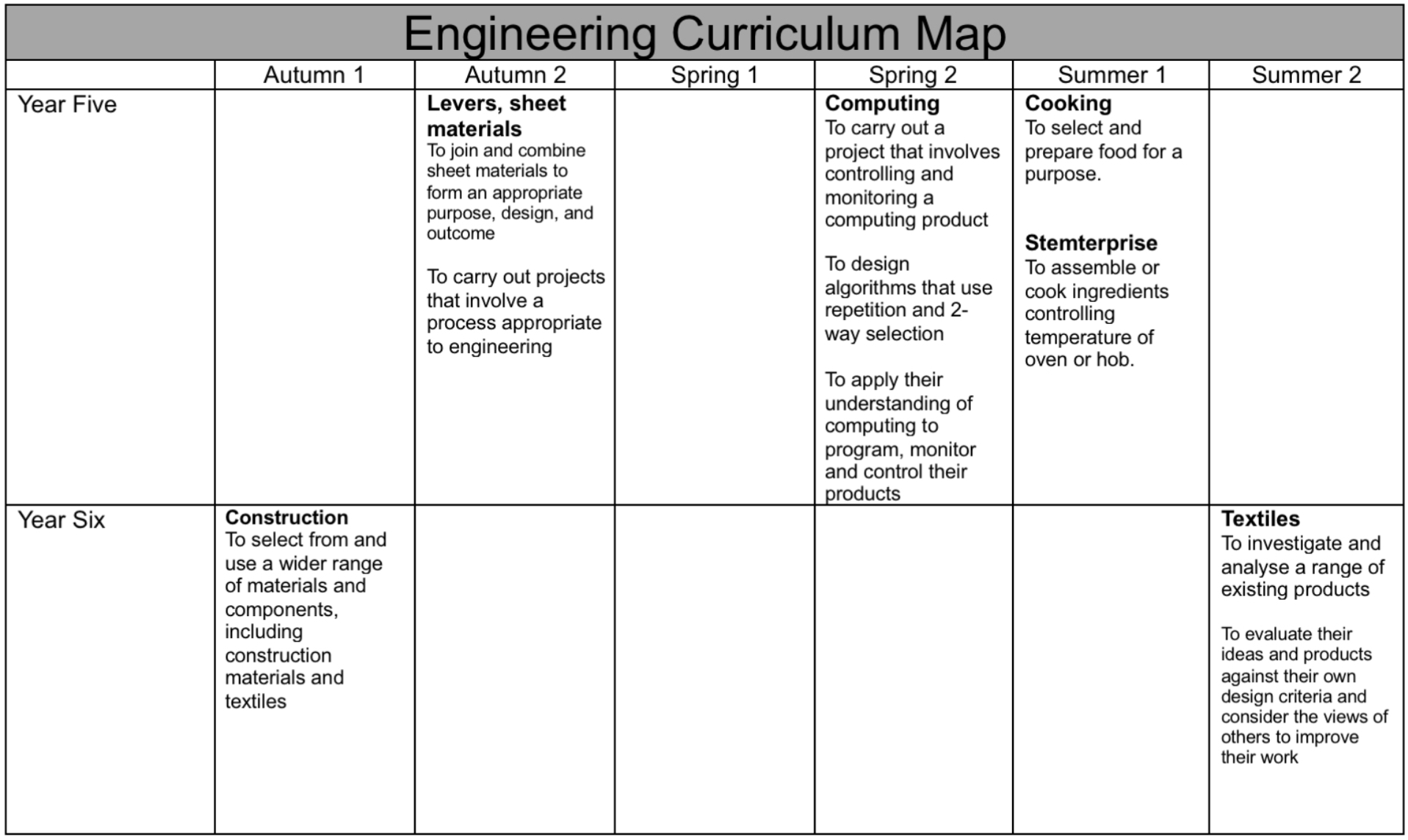
Understanding substantive and disciplinary concepts helps pupils think like real engineers! Every child is given opportunity to design, make, test and evaluate them to know more.
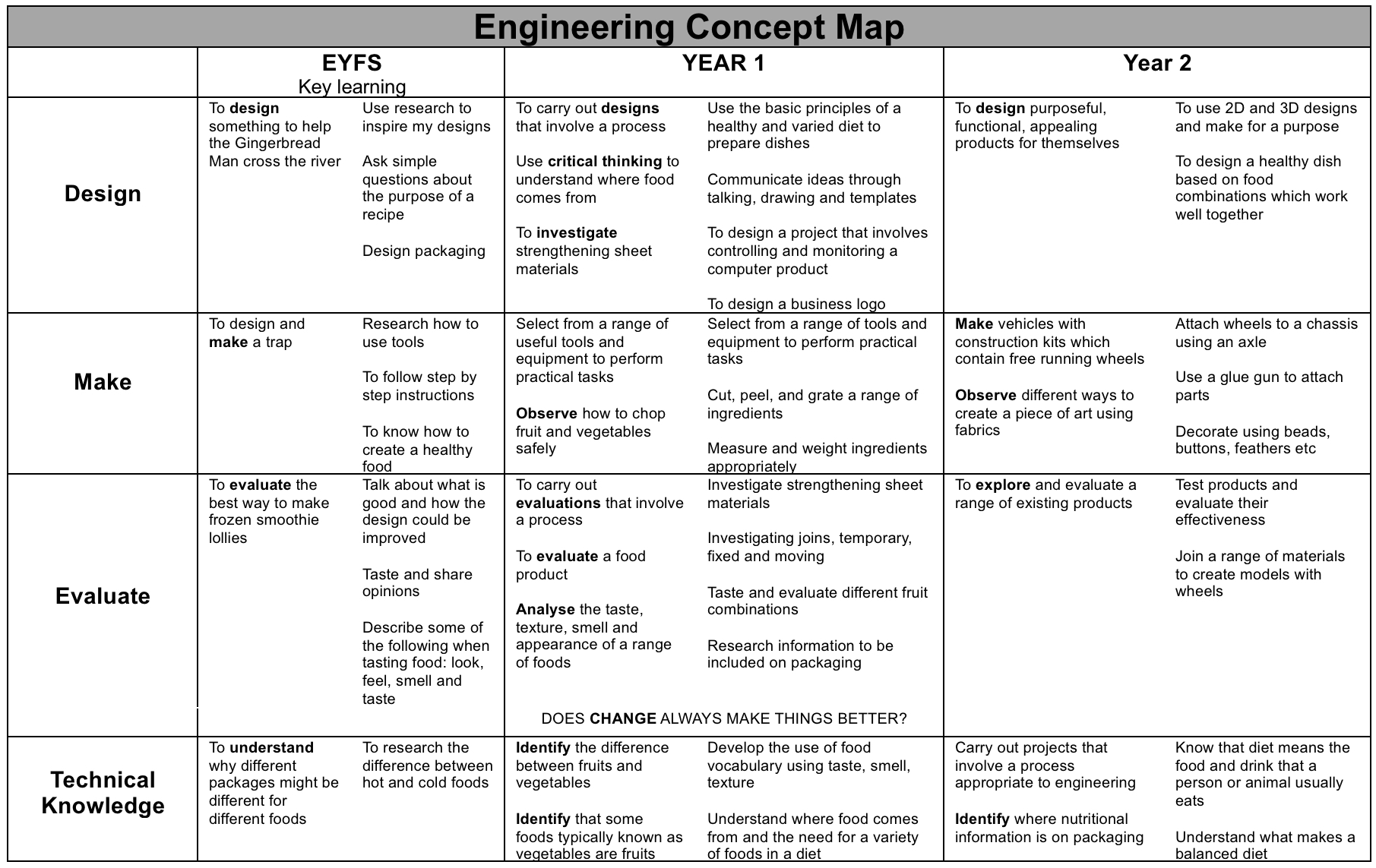
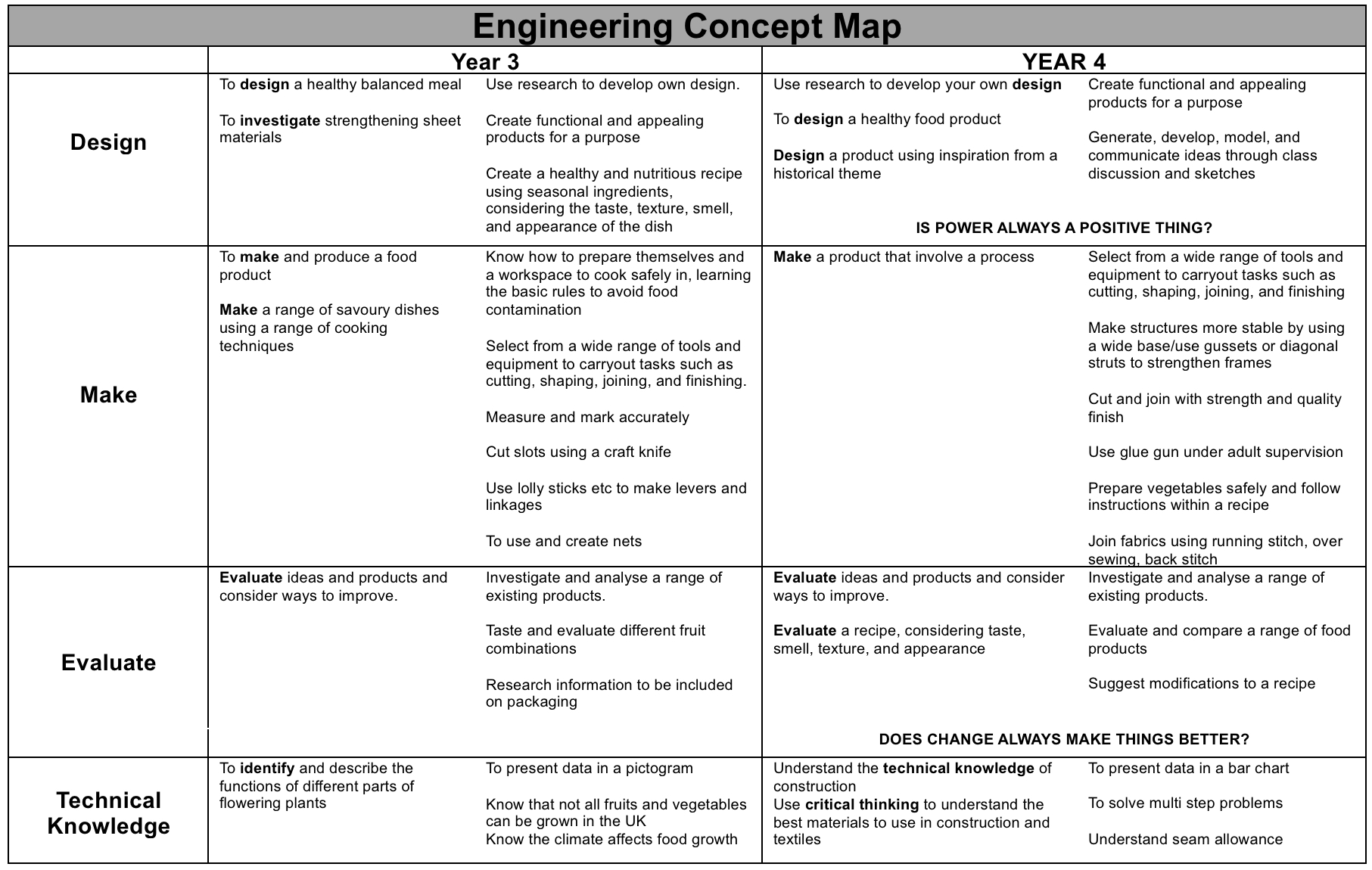

Situational Report
engineering suituational report.pdf
Road Map

Pupil Voice

Thinking like an engineer is one of my favourite things to do, it means I can work in groups and share my design.
Year 6 pupil
Showcase
Year 1
/i/video/Mr_Latif/Year_1_Showcase.mov
Year 3
/i/video/Mr_Latif/Year_3_Showcase.mov
Year 5
/i/video/Mr_Latif/Year_5_Showcase.mov
Year 6 Showcase
/i/video/Mr_Latif/Year_6_Showcase.mov

